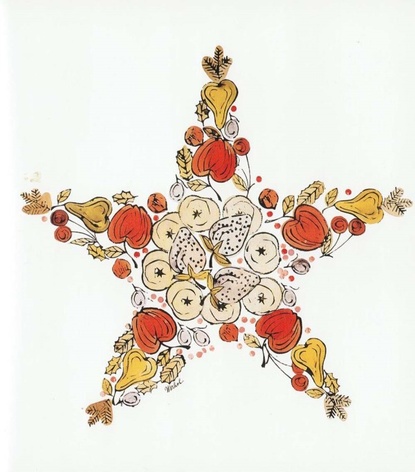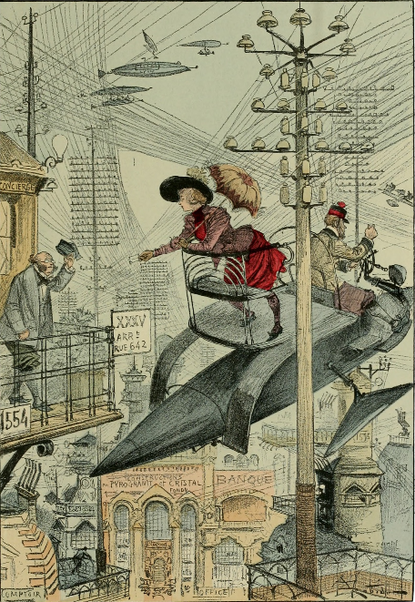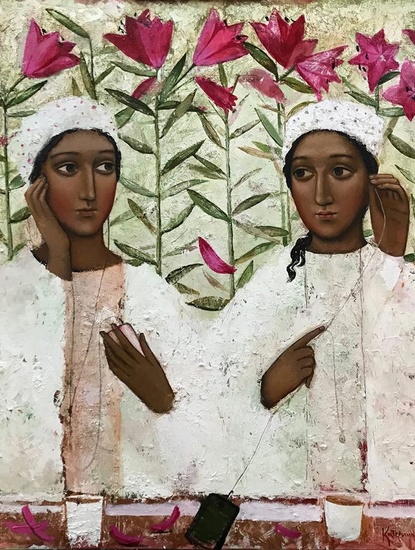Court Experiment project
Visual Culture Research Center, Center of Study of Society, Curatorial Union Hudrada together with tranzit.at present Court Experiment project
12 October – 12 November 2010, Kyiv
Court Experiment is a statement against the court prosecutions of Ukrainian activists for the expression of disagreement with existing injustice, it is an action of solidarity with accused Yevgenia Belorusets, Andriy Movchan, Serhiy Movchan and Olexandr Wolodarsky, who’s trails are going on for years. The project started from the visits to the court sessions by people who wanted to express their support for the accused activists. Among them were activists, journalists, academics and artists.
Court Experiment is an attempt to attract a public attention both to these concrete cases of prosecution and generally to the judicial system, which, being built in the capitalist economy, is an instrument of violence and injustice. The second important goal of the exhibition is to reveal the real matters, against which the activists protested – the destructive expansion of capital in social sphere, the increasing of moral censorship as an authoritarian symptom – framing them in a wider context of political, cultural, and social circumstances inherent in post-Soviet society.
The exhibition consists of the author’s works and the documentation of the court processes, which is made collectively. Only documentary materials are presented at the opening, afterwards the space is gradually filled with artists’ individual works. The process of filling in the space is accompanied by the discussions, screenings, performances and seminars. Court Experiment is an installation-in-process, which by imitating cyclic unfolding of the trails against the activists, addresses the subjects of political actions within the field of articulation between art, knowledge, and politics.
The exhibition presents the works by Yevgeniya Belorusets, David Chichkan, Ksenia Hnylytska, Nikita Kadan, Yulia Kostereva, Yuriy Kruchak, Vasyl Lozynskyy, Lada Nakonechna, Mykola Ridniy, Oleksiy Salmanov, Oleksandr Wolodarsky, and Anna Zvyagintseva. The court drawings, photos and installation of documentary material by Anatoliy Belov, Yevgeniya Belorusets, Oleksandr Burlaka, Nikita Kadan, Dmytro Myronchuk, Viktor Wolodarsky, and Anna Zvyagintseva. The exhibition is organized by curatorial union Hudrada.
Program
12 October, Tuesday
18.30 Opening: presentation of the documentary material of the court processes against Yevgenia Belorusets, Andriy Movchan, Serhiy Movchan and Olexandr Wolodarsky
18.30 Speech of the organizers
16 October, Saturday
17.30 Presentation of the works by Ksenia Hnylytska, Lada Nakonechna, Oleksiy Salmanov.
18.00 Discussion: Post-Soviet Capitalism and Repressive State Apparatus
Olga Bryukhovetska (moderator)
Vitaliy Atanasov (journalist and activist of socialist movement, Kyiv)
Ukrainian Independence and Dependency Development
Ilya Budratskis (political activist, historian, journalist, art critic, Moscow)
Restoration in Russia: State, Violence, Economy
20.00 Screening: Grenelle Agreements by Learning Fim Group, 2009
In 2009 art-critic, writer and anthropologist David Riff joined the team of Fiks, Budraitskis and Oleynikov to research the episode of 1968 – the so called Grenelle Agreements along with a group of restaurant workers from the Shopping Center in Moscow.
12 October, Tuesday
18.30 Presentation of the works by David Chichkan, Nikita Kadan, Yulia Kostereva, Yuriy Kruchak, Olexandr Wolodarsky.
19.00 Performance: Kyiv Vice: Militia of Mores
Vasyl Lozynskyy reads his poetry that reflects on TV-series Miami Vice’s paradoxical relevance for Ukraine in the conditions of the increasing mores censorship.
19.30 Discussion: Should Artists Have a Privilege of Immunity?
Oleksiy Radynsky, Vasyl Cherepanyn (moderators)
Accusatory sentence to Oleksandr Wolodarsky put Ukrainian artists in front of the difficult choice: should they take responsibility (in broad meaning of the term - including criminal) for their actions or should they develop the prevailing romantic notion of the artist that puts them outside the mundane world? Discussion aims to elaborate on the notion of artists' immunity derived from the infamous law immunity that is an official privilege of Ukrainian parliamentarians.
22 October, Friday
18.00 Introduction
Gijs Kessler (International Institute of Social History, Amsterdam)
Global Labor History: From Worker’s Strike to Worker’s Movement
18.30 Worker’s strike in contemporary Ukraine
Vitaliy Atanasov (moderator)
Volodymyr Ishchenko, Okasana Dutchak (Center of the Study of Society, editors of the journal of social criticism Commons, Kyiv).
Class Struggle in Ukraine: the Results of Monitoring of the Protests.
Oleksiy Klyashtornyi (activist and co-organizer of the Poltava GZK strike, People’s Solidarity trade union, Kyiv)
Should we “politically bury” the proletariat?
Zakhar Popovich (activist, member of the strike of the Poltava GZK strike, Kyiv)
Problems of solidarity between labor unions and politization of the labor’s protest with the example of Poltavsky Mining Plant
Denis Levin (activist and co-organizer of the Poltava GZK strike, People’s Solidarity trade union, Kyiv)
Is Worker’s Movement Able for Self-organization to Defend its Economic Rights?
20.30 Screening of the video-documentation of the Poltava GZK strike, Summer 2010
Presented by Andriy Metliov (philosopher and researcher of new media, Kyiv).
23 October, Saturday
17.30 Presentation of the works by Yevgeniya Belorusets, Nikita Kadan, Mykola Ridniy, Anna Zvyagintseva
18.00 Discussion: Global Economic Crisis and Worker’s Strike
Anastasiya Riabchuk (moderator)
Mihai Varga (political scientist, University of Amsterdam)
Political Involvement in Industrial Conflict in Ukraine during the World Economic Crisis, 2008-2010
Marko Bojcun (Senior Lecturer in the Faculty of Law, Governance and International Relations at London Metropolitan University, member of the Institute for the Study of European Transformations, and member of the Global Policy Institute)
Is it over yet? The longer term consequences of the global economic crisis for
Ukraine
26 October, Tuesday
17.30 Screenings Artur Żmijewski. From the Selected Works: Aldo, Giuseppe, Salvatore, Ursula, Patricia, Dieter, Dorota, Danuta, Halina, Jolanda (2006-2007)
Labor has taken the place of sex on top of the hierarchy of "obscene" practices, which can not be displayed on screen. No wonder that in today's Hollywood movies physical labor is done by terrorists exclusively. In his "Selected Works" Artur Żmijewski instrumentalizes the method of cinéma vérité to visualize the "obscene" labor of modern workers.
1 – 6 November, Monday - Friday
Conference: Cinematic Dispositif: Moving Image in Social Context
Together with the Center of Cinema Studies and International Film Festival Molodist
If film is not just a medium but also a social practice then the question perhaps should be formulated differently: how it is possible by making and analyzing cinema to analyze society, and its ideology?
Cinematic dispositif does not represent reality but the real circumstances of our existence: our “always-already” belongingness to social dispositifs within which we act. This is elucidates the meaning of Roland Bathes’ call to revert the perspective: not to look for ideology in films but to see ideology as a ‘cinema of society’.
9 November, Tuesday
17.30 Press-conference on the results of the competition for the best journalist work Against Tortures!
18.15 Discussion: Torturing in Ukrainian Police: Reasons, Frequency, Effects, Irresponsibility. How to stop it?
Organized by Kharkiv Human Rights Protection Group
Participants of the discussion: Andriy Dydenko (coordinator of the programs KhPG), Evgen Zakharov (co-head of KhPG), Oleg Levytsky (advocate), Kateryna Levchenko (director of the International Woman’s center for protection of human rights La Strada, Ukraine), Denys Kobzin (Director of the Kharkiv Institute of Social Studies), Ludmyla Koval (expert of KhPG).
12 November, Friday
Closing
Curatorial Union Hudrada - a selforganized unterdisciplinary community, which started to work from 2008. It consists of young artists, architects, activists, writers and academics. The projects organized by Hudrada were aiming at creation of the space of collective speech actions. Hudrada’s first public statement was the project Views, which was made in 2009 with the support of the Foundation of the Center of Contemporary Art.
Center for Society Research – an independent non-commercial center for social problems and collective protests research. It unites engaged social researchers and activists to develop public social science - publicly meaningful knowledge for non-academic audience. Since 2009 the CSR conducts a systematic monitoring of all protest events and authorities responses to them in Ukraine.
Visual Culture Research Center http://vcrc.ukma.kiev.ua/en - a platform for the analysis of current conditions in terms of art, knowledge and politics. VCRC emerged in 2008 as an institutionalization of the activities held by a group of scholars and students at the Department of Cultural Studies at the National University of Kyiv-Mohyla Academy. Court Experiment is a part of ongoing project Visual Dispositif - Social Dispositif launched in April 2010 with the support of tranzit.at
Address:
National University of Kyiv-Mohyla Academy
Kyiv, 2 Skovorody Str.
‘Staroakademichniy’ building, first floor









